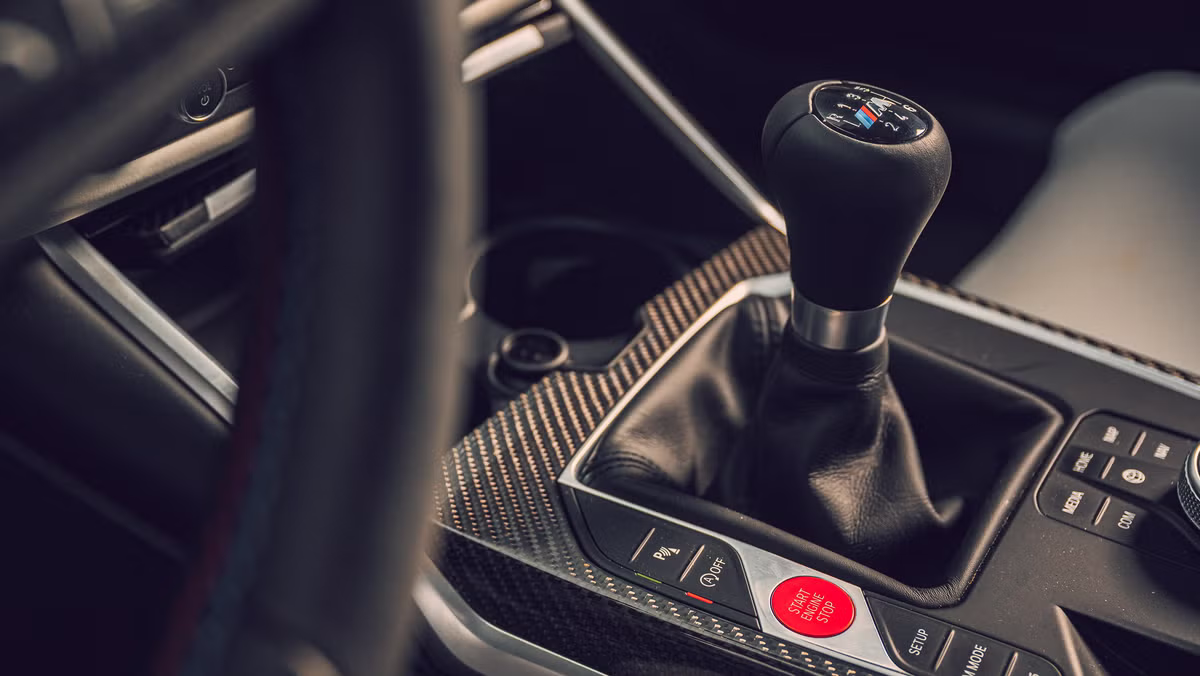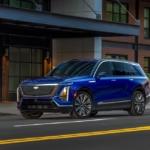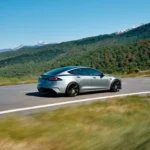In an automotive world increasingly dominated by sophisticated automatic transmissions and the inevitable rise of electric vehicles, the traditional manual gearbox has become a cherished, almost anachronistic, feature.
For many driving enthusiasts, the engagement, control, and pure connection offered by a three-pedal setup remain unparalleled. The debate over the manual transmission’s future is particularly poignant in the realm of high-performance vehicles, where driver involvement is often paramount. Brands like BMW M, renowned for their “Ultimate Driving Machines,” have long catered to this purist segment.
Recent statements from a high-ranking BMW M executive offer a glimmer of hope for those who believe the stick shift should endure. Speaking with BMW Blog, the executive indicated that the brand’s engineers “will always try” to offer manual transmissions in upcoming models. This declaration suggests that BMW M has not yet set a definitive “end date” for its six-speed sticks, providing a welcome reprieve for manual aficionados.
While nothing is entirely definite, this latest insight suggests that BMW buyers who cherish the tactile experience of shifting gears themselves may still have options to choose from even after the current generation of M2, M3, and M4 models eventually transitions out. This news, while cautious, resonates deeply with a dedicated segment of the automotive community, hinting that the manual might just survive the ongoing technological shift in the performance car landscape.
Hope on the Horizon: Executive Remarks and Shifting Stances
The latest comments from BMW M leadership provide a beacon of hope for manual transmission enthusiasts, albeit with a history of varying statements.
A Glimmer of Continued Commitment
The most recent insights from Sylvia Neubauer, a BMW M executive, provide the strongest indication yet that the manual transmission’s demise is not a foregone conclusion within the performance division. In her conversation with BMW Blog, Neubauer conveyed a spirit of continuous innovation and responsiveness to enthusiast desires within BMW M. She explicitly stated that the brand “will always be very creative” when planning future products. This suggests a willingness to explore all avenues, including those that might seem less conventional in an increasingly automated world.
Crucially, Neubauer added a particularly encouraging remark: “If [BMW M] engineers can make [new manual products] happen, I think they will always try to do so.” This statement implies that the continuation of manual transmissions is not merely a marketing ploy but a genuine engineering objective, provided technical feasibility and market viability can be aligned.
For manual-transmission BMW loyalists, this represents a significant ray of sunshine on a topic that has often been clouded by uncertainty. It signals that the desire for driver engagement through a stick shift is still deeply ingrained in the ethos of the M division, and that the engineers, who are often enthusiasts themselves, are actively exploring ways to keep this beloved transmission type alive for future models. This level of internal advocacy is critical for any technology facing potential obsolescence.
Navigating Conflicting Statements and Challenges
While Sylvia Neubauer’s remarks offer renewed hope, it is important to contextualize them within a history of somewhat conflicting statements from BMW M executives over recent years. This evolving narrative reflects the genuine challenges and internal debates surrounding the future of manual transmissions in a rapidly changing automotive industry.
For example, as recently as 2022, Frank van Meel, another prominent BMW M leader, had previously indicated a more definitive, albeit still positive, timeline. He had stated that the company planned to keep manuals in the M2, M3, and M4 lines through the end of the decade. This earlier assurance provided a clear, albeit finite, horizon for manual gearbox availability.
However, the situation became more ambiguous in 2023 when a third executive suggested that the six-speed would ultimately end with the current generation of M cars. The primary reason cited for this potential discontinuation was supplier constraints. This highlights a critical, often overlooked, aspect of automotive manufacturing: the reliance on a complex supply chain. If key component suppliers cease production of manual transmission parts due to declining demand across the industry, it becomes incredibly challenging, if not impossible, for even a committed brand like BMW M to continue offering them.
Therefore, while Neubauer’s latest comments are encouraging, they also subtly acknowledge these practical hurdles. The engineers’ commitment to “make it happen” suggests they are actively seeking solutions to overcome these potential supply chain issues or exploring alternative manufacturing strategies to preserve the option for enthusiasts. This ongoing dialogue underscores the delicate balance between enthusiast demand, engineering feasibility, and broader industry trends.
Potential Future Manual Candidates: Where the Stick Shift Could Endure
If BMW M finds a viable path forward for manual transmissions, certain models stand out as prime candidates to carry the torch.
The Next Internal-Combustion M3: A Prime Candidate
Among the potential future models that could retain a six-speed manual transmission, the next internal-combustion M3 is arguably the most likely candidate. The M3 has historically been the quintessential performance sedan for enthusiasts, offering a blend of daily usability and thrilling track capability. A manual gearbox in this model would directly cater to a significant portion of its dedicated fanbase, who prioritize driver engagement above all else. This choice also makes strategic sense given BMW’s broader product roadmap.
The gas-powered next-generation M3 will be sold alongside an upcoming electric equivalent of the M3. In this evolving landscape, where electric vehicles are increasingly dominating in terms of raw acceleration and power, a manual transmission would provide the gasoline-powered M3 with a crucial standout feature. It would offer a distinct, emotionally resonant differentiator to compete with an alternative that is likely to be both faster and more powerful in a straight line.
The manual transmission would appeal to the visceral, tactile experience of driving that many purists crave, reinforcing the internal combustion M3’s unique identity as the era of electrification accelerates. This strategic positioning could allow the manual M3 to carve out a niche and remain highly desirable for a specific segment of performance car buyers.
Limited-Run Specials: A Niche, High-Value Option
Beyond mainstream M models, there’s also the intriguing possibility of manual transmissions appearing in limited-run special cars. These low-volume, high-value vehicles often serve as showcases for a brand’s heritage, craftsmanship, and engineering prowess, appealing to collectors and the most discerning enthusiasts. A six-speed stick could indeed make such vehicles even more special, amplifying their exclusivity and appeal. For example, concepts like the recently revealed BMW Skytop—a stunning two-seat roadster—could be elevated further with a manual gearbox, tapping into a desire for pure, unadulterated driving experiences that are increasingly rare.
However, it’s worth noting that BMW’s history with manuals in such limited production vehicles is somewhat sparse. The company has not built any candidates for limited production with a manual since the Z8 debuted in 1998. This historical precedent suggests that incorporating a manual into these bespoke projects might require a shift in strategy or significant engineering investment for very low volume. Despite this, the market has seen other premium manufacturers, such as Ferrari, recognize the potential for limited-run cars with stick shifts.
Ferrari, a brand synonymous with exclusivity and performance, has produced highly sought-after, manual-equipped special editions in recent years, demonstrating a clear demand among top-tier collectors. If Ferrari sees this potential and is willing to cater to it, then there’s a compelling argument to be made: who’s to say BMW couldn’t follow suit? This would allow BMW M to satisfy the most ardent manual enthusiasts and reinforce its commitment to driver engagement, even if in highly exclusive, collector-focused vehicles.
The Broader Context: Manuals in a Changing Automotive Landscape
The discussion around BMW M’s manual transmissions occurs against a backdrop of significant shifts in the global automotive industry.
The Rise of Electrification and Automation
The automotive landscape is undergoing a profound transformation, driven primarily by the rise of electrification and increasing automation. Electric vehicles (EVs), with their instant torque delivery, often superior acceleration, and inherent simplicity of a single-speed transmission, are rapidly gaining market share. As internal combustion engine (ICE) vehicles are gradually phased out in many regions due to emissions regulations and environmental concerns, the production of complex ICE-specific components, including manual transmissions, naturally declines. This global shift inevitably impacts the supply chain, making it more challenging and costly for manufacturers to source or produce manual gearboxes.
Furthermore, the proliferation of advanced driver-assistance systems (ADAS) and the eventual move towards fully autonomous driving inherently favor automatic transmissions. Automated systems are designed for seamless, uninterrupted power delivery and control, which aligns perfectly with the characteristics of modern automatics, dual-clutches, and EV powertrains.
The manual transmission, by its very nature, relies on active human intervention, making its integration with increasingly sophisticated automated driving features more complex. These macro trends present a significant challenge for any automaker wishing to preserve the manual option, requiring dedicated engineering effort and a strong business case to justify its continued existence in a world moving towards electric and autonomous mobility.
Enthusiast Demand vs. Mass Market Trends
The persistence of manual transmissions in niche performance cars, like those from BMW M, represents a compelling case study in the tension between enthusiast demand and mass-market trends. For the vast majority of car buyers globally, convenience and efficiency are paramount. Modern automatic transmissions, particularly dual-clutch units, offer lightning-fast shifts, superior fuel economy, and unmatched ease of use in congested traffic.
Consequently, the demand for manual transmissions in the broader market has steadily declined, leading many automakers to phase them out entirely across their mainstream lineups. This commercial reality impacts production volumes and the economic viability of manufacturing manual components.
However, a dedicated and vocal segment of automotive enthusiasts continues to champion the manual gearbox. For these drivers, the tactile feedback of a clutch pedal, the precise engagement of a gear lever, and the direct mechanical connection to the powertrain are irreplaceable elements of the driving experience. They often view manual transmissions as fundamental to the “soul” of a sports car.
Brands like BMW M, Porsche, and a few others recognize the importance of catering to this passionate customer base, even if it represents a smaller volume. The challenge lies in justifying the significant engineering and manufacturing costs of continuing to offer a manual option when the broader market has moved on. Sylvia Neubauer’s comments suggest that BMW M is actively grappling with this challenge, seeking creative solutions to satisfy the purists while navigating the commercial realities and technological advancements of the industry. The future of the manual transmission may well depend on the brand’s ability to maintain this delicate balance, perhaps increasingly focusing on limited-edition or purist-focused models to keep the flame alive.
Manual Future, For Now
The latest comments from a BMW M executive offer a welcome assurance to driving enthusiasts: the manual transmission is not yet dead for the brand’s performance cars. While the automotive industry hurtles towards an electric and autonomous future, BMW M’s engineers are committed to finding creative ways to keep the six-speed stick alive, reflecting a dedication to driver engagement that defines the M division.
The next internal-combustion M3 appears to be a strong candidate to retain a manual gearbox, offering a unique selling point against its electric counterpart. Furthermore, the possibility of manual transmissions appearing in limited-run, special edition M cars, echoing successful strategies from other luxury performance brands, presents another avenue for its survival. While challenges like supplier constraints and mass-market trends persist, BMW M’s ongoing effort to cater to purist demand indicates that the beloved stick shift may yet have a surprising future in these ultimate driving machines.








